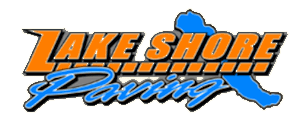The Post-Journal
by Frank Hyde
March 18, 1959
Top Thrills For Howard Ehmke Were Beating Jamestown High and Chicago Cubs
Howard Ehmke, who died yesterday, always said one of his big thrills was winning a high school game shortly after the turn of the century.
The team he beat was Jamestown High School and the pitcher he beat was Harry G. Carlson, now director of athletics at Colorado University.
Harry G. is a close friend of Lakewood's Leon Carlson, but the two men are not related as some oldtimers think. Harry G. never went as far as Leon in baseball. He never went as far as Ehmke, either, but he was a bear for the day. Howard, hurling for Silver Creek, where he was born, tangled with him.
"As I recall it, the game went extra innings," Howard told us years ago at the Buffalo Athletic Club sports dinner. "A kid we called 'Booger' or something like that, doubled in the winning run. I was sure glad. I couldn't raise my arm for a week."
Since he's been mentioned, it might be well to explain Leon Carlson, now head man at Laco Roofing, went all the way, hurling for Washington briefly in 1920. He still chuckles telling of the first time he faced Babe Ruth and fanned him. And gets an equally hearty chuckle relating about the second time he pitched to the Babe. "The buttons were busting off my jacket when I came to the dugout after fanning Ruth," Leon explains. 'So that's Babe Ruth? Well, well what do you know,’ I asked someone. The guy said, 'Yes, that's Ruth. Stick around and you'll get better acquainted .' Well, we did. The next time I pitched to him I tried the same delivery and he hit one of the longest home runs ever belted in Griffith Stadium at Washington."
Emke left Silver Creek when he was a young man but he's still a legend in the Lake Shore city. His death recalls the 1929 World Series and one of the most dramatic stories ever to come off a baseball diamond.
Howard kicked around the minors for a time and wound up with Buffalo in the Federal League in 1915 where he was a teammate of Hugh Bedient of Falconer. Hugh, still a real rugged guy of 69 years, had jumped the Red Sox to enter the so-called "outlaw league" with Buffalo. "Ehmke was a fine fellow, a great teammate and a wonderful guy to get along with," Hugh recalled yesterday, saddened by the news his old friend and teammate had passed on. Hugh, who had made a name for himself in the 1912 World Series, and Howard went their separate ways in 1916, Bedient to Toledo and Ehmke with Detroit.
Howard was with Detroit, Boston and finally with Philadelphia as the twilight years approached, and that's where he wrote a dramatic finish to a great career.
The A's won the pennant and were ready for the Chicago Cubs in the 1929 fall showdown. Writers speculated who Manager Connie Mack would name to pitch the opener for the American League champs. They always came back to one conclusion - it had to be Lefty Grove or George Earnshaw. A guy name Ehmke was never considered. Howard, carrying a lame arm, had not been in a game for 21 days. So when Mack announced Ehmke would face Cub Manager Joe McCarthy's choice, Charlie Root, it was a journalistic bombshell. One Philadelphia newspaper (the series opened in Chicago) ran a streamer: "A's Concede First Game." But cunning old Howard, singing his swan song, beat Root and in doing so fanned 13 Cubs, a World Series strikeout record that stood until Carl Erskine of Brooklyn did in the Yankees with 14 in the third game of the 1953 classic.
Some historians like to say Howard didn't know until shortly before game time he was to pitch the opener. But Ehmke has denied it many times. "I knew it the night before," he told us at Buffalo. "Connie left me at Philly on our last road trip and told me to work out every day. When he came back, he called me aside and said: 'Do you feel like pitching the opener? I said I did and that's all there was to it. Funny thing, I hadn't been sleeping well, sort of worried about my arm and all, but after Mister Mack told me I'd pitch against the Cubs, I went to bed that night and slept like a baby - just a fatalist, I guess."
So, who could blame Charlie Root, the old Cub standby, years later when he snorted: "I'm awfully tired of being a goat for these World Series heroes." Root was beaten by Ehmke, then three years later came the Babe Ruth incident in Chicago. Ruth, irked by the jockeying he was taking from the Cub bench, pointed to the stands to indicate where he would hit a home run. And he did - with Root pitching. Root always claimed the Babe never pointed. Old Charlie felt so strongly about it that when Hollywood filmed "The Babe Ruth Story" Root refused to play himself. The ante was upped to $10,000 but Charlie turned it down. "It never happened and I'll be danged if I'm going to play the part of a lie," Charlie roared.
The additional financial assistance of the community is critical to the success of the Chautauqua Sports Hall of Fame.
We gratefully acknowledge these individuals and organizations for their generous support.












